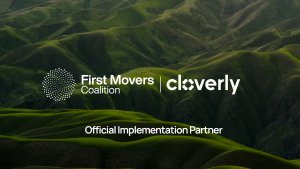The Integrity Council for the Voluntary Carbon Market (ICVCM), a pivotal entity in the VCM, aims to enhance the integrity and transparency of carbon credits through the establishment of Core Carbon Principles (CCP). On January 31, 2024, the ICVCM announced it completed grouping similar carbon credit methodologies into 36 categories. It will now begin assessing more than 100 active methodologies against the CCP Assessment Framework — categorizing them into distinct tiers based on their complexity and the ease with which they can meet the CCP standards. This process is designed to streamline the evaluation of credits, focusing first on those methodologies deemed most straightforward to assess. For an industry at the cusp of transformative growth, this represents a critical step toward standardizing the quality and integrity of carbon credits available to businesses and investors.
“The Core Carbon Principles establish a global benchmark for high integrity. We know buyers are eagerly awaiting CCP-labeled carbon credits. We are keen to ensure the labels reach the market as soon as possible while ensuring that we properly consider complex issues and make the right decisions.”
Annette Nazareth, ICVCM Council Chair
To learn more about de-risking your carbon credit purchase, watch the on-demand webinar Managing Carbon Credit Quality and Risk in the Voluntary Carbon Markets.
At Cloverly, we are committed to guiding you through these changes, ensuring you stay well-informed and at the forefront of the evolving carbon credit landscape. Here’s what you need to know.
What’s the ICVCM update? Understanding the tiered assessment process for VCM programs
As part of the announcement, the ICVCM unveiled a tiered process for evaluating carbon credit programs in the 36 categories against its CCP Assessment Framework. This is poised to fundamentally transform how carbon credits are evaluated, offering a clearer pathway for the identification and purchase of high-quality offsets. With only 8% of carbon credits expected to be fast-tracked for the CCP label, it’s crucial for both buyers and sellers to grasp the implications of this update. The process is divided into the following key tiers:
- Fast-tracked categories (8% of the market): The ICVCM has determined that certain project types, including methane capture from mines and landfill sites, gas system leak detection and repair, destruction of ozone-depleting chemicals, and reducing sulfur hexafluoride emissions, are the easiest to assess and thus have been fast-tracked. These project types represent the top 8% of carbon credits by methodology and are assessed internally by the Integrity Council secretariat and members of its Expert Panel.
- Expert assessment required (47% of the market): A significant portion of the market, 47%, involves project categories that present more complex issues, such as renewable energy, efficient cookstoves, improved forest management, and REDD+ projects (Reducing Emissions from Deforestation and Degradation in Developing Countries). These categories require detailed assessment by Multi-Stakeholder Working Groups, including Expert Panel members and external experts with relevant knowledge.
- Unlikely to meet criteria (1% of the market): Projects that are considered unlikely to meet the CCP criteria, covering 1% of the market, will be assessed only after the completion of evaluations for the above categories. This includes projects like new natural gas power, waste heat recovery, and industrial energy efficiency initiatives.
The remaining ~44% of carbon credits in the market have been excluded at this time due to various reasons such as older or inactive methodologies, data inconsistency, etc. This structured approach aims to prioritize the assessment of project categories based on their potential to contribute to high-quality emission reductions, with a particular focus on rigor, impact, and governance.
“Some assessments will be quicker to make than others, but this is no reflection on the depth of the assessment or the quality of the methodologies or programs. For example, it is easier to quantify methane emissions captured from landfill gas sites than the impact of measures taken by a remote rural community to preserve a forest. All categories will be assessed with the same rigor for adherence to all our criteria, the only difference is that there will be more experts involved where the technical complexity of the category requires it.”
Annette Nazareth, ICVCM Council Chair
How will the ICVCM tiered assessments impact the VCM?
This tiered approach is set to have an immediate and significant impact on the Voluntary Carbon Market (VCM). The near-term focus on a select group of project categories signals a shift toward prioritizing technologies and methodologies with clear, measurable impacts on emission reduction. As a result, we anticipate a surge in demand for projects within the fast-tracked categories, potentially leading to price adjustments due to the supply/demand dynamics. Meanwhile, the remaining 92% of the market awaiting assessment could continue to experience a period of uncertainty and adjustment through Q3 and Q4 this year.
For the broader market, this development underscores the importance of robust, credible standards in elevating the quality of carbon credits. This move also signals to governments and regulators the importance of incorporating high-integrity standards into their frameworks, further influencing market dynamics. Lastly, it highlights the potential bottlenecks in the certification process, particularly the role of registries like Verra, Gold Standard, and the American Carbon Registry in issuing CCP labels. The pace at which these entities can manage through the assessment process will critically influence market fluidity and the availability of CCP-labeled credits.
What this means for carbon credit buyers
For buyers, the ICVCM’s tiered process introduces a new paradigm in selecting carbon credits. The prioritization of certain project categories — based on their straightforward assessment criteria and direct emission reduction impact — offers a clearer path to investing in high-integrity credits. Buyers should be prepared for possible price fluctuations as the market adjusts to the new standards and demand patterns.
Moreover, the emphasis on CCP-compliant credits may encourage buyers to reassess their carbon credit strategies, focusing on projects that not only contribute to their sustainability goals but also align with the highest market standards.
Implications for carbon credit suppliers
Carbon credit suppliers and sellers, particularly those within the fast-tracked categories, may find new opportunities for their projects as demand increases. However, this also means they must navigate the complexities of compliance with CCP standards, potentially requiring adjustments to monitoring, reporting, and verification processes. For projects outside the prioritized categories, the challenge will be to maintain relevance and attractiveness to buyers, underscoring the importance of demonstrating real, measurable environmental benefits.
How Cloverly can help
The ICVCM’s tiered assessment process is a game-changer for the VCM, setting a new benchmark for quality and integrity in carbon crediting. As the market adapts to these standards, it’s crucial for all stakeholders to understand and embrace the significance of these developments. Cloverly remains committed to empowering our clients and partners with the knowledge, expertise, and tools needed to thrive. By facilitating transparency, rigor, and innovation in scaling climate action, we stand at the leading edge of this new frontier.
Partner with us to get started today and be part of the future VCM that thrives on the principles of integrity, transparency, and meaningful action.
To learn more about navigating carbon credit quality and risk, watch the webinar: Managing Carbon Credit Quality and Risk in the Voluntary Carbon Markets.
About the author:
Julie Yamamoto is the Senior Content Manager at Cloverly. She has over 20 years of global experience spanning multiple sectors. Her work has been featured in several enterprise and nonprofit digital channels, as well as Forbes, TechTarget, GreenBiz, and American Forests. In previous roles, she led content marketing for the OneTrust ESG & Sustainability Cloud and the IBM Center for Applied Insights. She is also a trained Climate Reality leader and has led sustainability initiatives such as IBM AI for Social Good (Environment), Watson Green Advisor, Forests for the Earth, and conservation data science.





